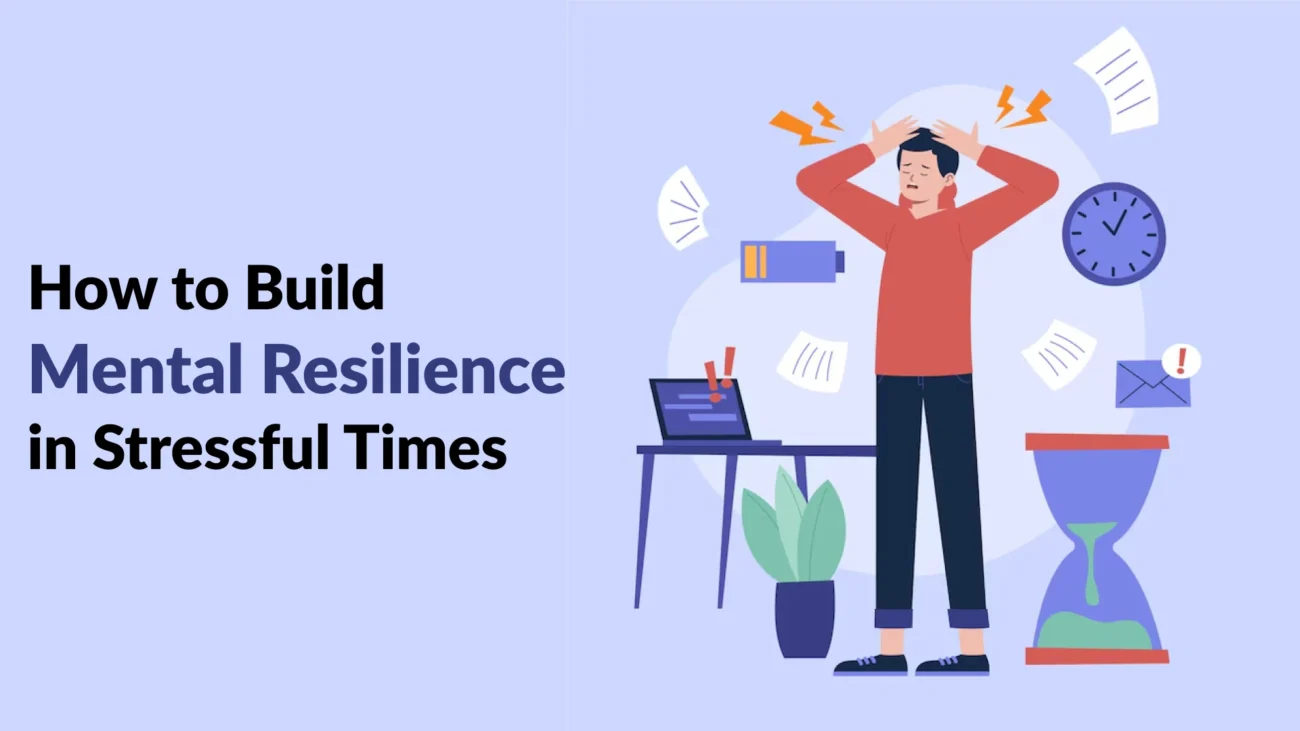In an era defined by uncertainty, rapid change, and relentless pressure, mental resilience has become a crucial skill for navigating life’s challenges. Whether you’re a young professional juggling deadlines, a student managing academic stress, or a parent balancing work and home, the ability to bounce back from adversity is key to maintaining emotional well-being and long-term success.
This guide explores how to build mental resilience using expert-backed stress management techniques, coping strategies for anxiety, and holistic practices like mindfulness for resilience. Let’s dive into how you can strengthen your mind and handle life’s toughest moments with confidence and clarity.
What Is Mental Resilience?
Mental resilience refers to your ability to mentally or emotionally cope with a crisis or return to pre-crisis status quickly. It’s not about avoiding stress but learning how to handle stress effectively without letting it derail your progress or well-being.
People with high mental resilience are better at:
- Managing stress under pressure
- Adapting to change
- Recovering from setbacks and burnout
- Staying optimistic during hardships
Why Mental Resilience Matters for You
Whether you’re aiming to improve performance, protect your mental health, or find balance, building emotional strength through mental resilience enhances every aspect of life. According to the American Psychological Association, resilience can be cultivated with intentional practices and supportive environments.
Target Audience Relevance:
- Young professionals: Thrive in high-pressure careers
- Students: Manage exam stress and academic burnout
- Working parents: Balance family demands and work stress
- Trauma survivors: Rebuild emotional control and stability
- Self-improvement seekers: Enhance overall emotional well-being
1. Identify Stress Triggers
The first step in building mental resilience is recognizing what’s causing your stress. Is it deadlines? Family responsibilities? Financial worries? Identifying these stress triggers can help you create targeted coping strategies for anxiety and avoid being overwhelmed.
2. Practice Mindfulness for Resilience
One of the most effective tools for strengthening your mental resilience is mindfulness. It brings your focus to the present moment and allows you to observe your thoughts and emotions without judgment.
Mindfulness Techniques:
- Daily 10-minute meditation
- Focused breathing exercises
- Grounding techniques (5-4-3-2-1 method)
- Body scan relaxation
Studies show that mindfulness for resilience helps reduce symptoms of anxiety, depression, and PTSD by promoting calm and clarity.
3. Build a Strong Support Network
Resilience doesn’t mean facing everything alone. In fact, emotionally resilient people often rely on a supportive community to share their burdens.
Try This:
- Stay connected with friends or family
- Join mental health support groups
- Seek therapy or life coaching
- Talk openly about emotional struggles
4. Develop Coping Strategies for Anxiety
Healthy coping strategies are vital for staying grounded in stressful times. Avoid numbing yourself with alcohol, social media, or isolation. Instead, embrace productive habits.
Effective Coping Strategies:
- Journaling thoughts and emotions
- Progressive muscle relaxation
- Creative outlets like art, music, or writing
- Physical activity like yoga or walking
Pro Tip: Exercise also helps boost your energy and contributes to emotional stability.
5. Learn Resilience Training Techniques
Resilience training programs can significantly improve your ability to manage stress, think positively, and build mental strength. These structured programs, often used by the military and athletes, involve exercises in cognitive reframing, emotional regulation, and goal setting.
Key Elements of Resilience Training:
- Optimism conditioning
- Realistic goal-setting
- Self-reflection practices
- Visualization of success
Many organizations and universities now offer online resilience workshops to help you sharpen these skills.
6. Prioritize Self-Care During Tough Times
Self-care during tough times is not a luxury—it’s essential. Caring for your body and mind boosts your ability to face adversity and bounce back.
Self-Care Checklist:
- Eat nourishing meals (consider foods that boost immunity)
- Maintain a regular sleep schedule
- Take tech-free breaks
- Drink enough water
- Do something you enjoy daily
Don’t underestimate the power of rest and joy in your resilience journey.
7. Overcome Burnout With Small Wins
Overcoming burnout is possible—but it requires you to stop glorifying busyness and start valuing recovery. Instead of pushing through exhaustion, learn to pace yourself and celebrate progress, no matter how small.
Try These Tactics:
- Break big tasks into smaller steps
- Celebrate daily accomplishments
- Take mini-vacations or mental health days
- Reduce your workload when needed
8. Boost Emotional Well-Being Daily
Building emotional well-being is like training a muscle—it takes daily, intentional effort. By focusing on gratitude, purpose, and positivity, you improve your emotional baseline over time.
Daily Practices:
- Write down 3 things you’re grateful for
- Practice positive affirmations
- Limit negative media consumption
- Volunteer or do acts of kindness
Improving your mindset contributes to better resilience, especially when facing long-term challenges.
9. Apply Effective Stress Management Techniques
There’s no one-size-fits-all approach to stress, but these stress management techniques work across various lifestyles and situations:
Top Stress Management Tips:
- Time-block your tasks to reduce overload
- Use the Pomodoro technique for productivity
- Declutter your space to improve focus
- Listen to calming music or nature sounds
Managing stress effectively gives you more mental bandwidth to deal with future difficulties.
10. Embrace Growth Through Adversity
Resilient individuals view challenges not as roadblocks, but as opportunities for personal growth. When you shift your mindset from “Why is this happening to me?” to “What is this teaching me?”, you activate your inner strength.
Final Thoughts
Learning how to build mental resilience is one of the most valuable investments you can make for your personal and professional life. With consistency and the right tools—from mindfulness for resilience to self-care during tough times—you can navigate stress, setbacks, and change with grace and strength.
Whether you’re recovering from burnout, dealing with anxiety, or simply seeking a better quality of life, start with small, daily actions. Building resilience is a journey—and you are capable of more than you think.


